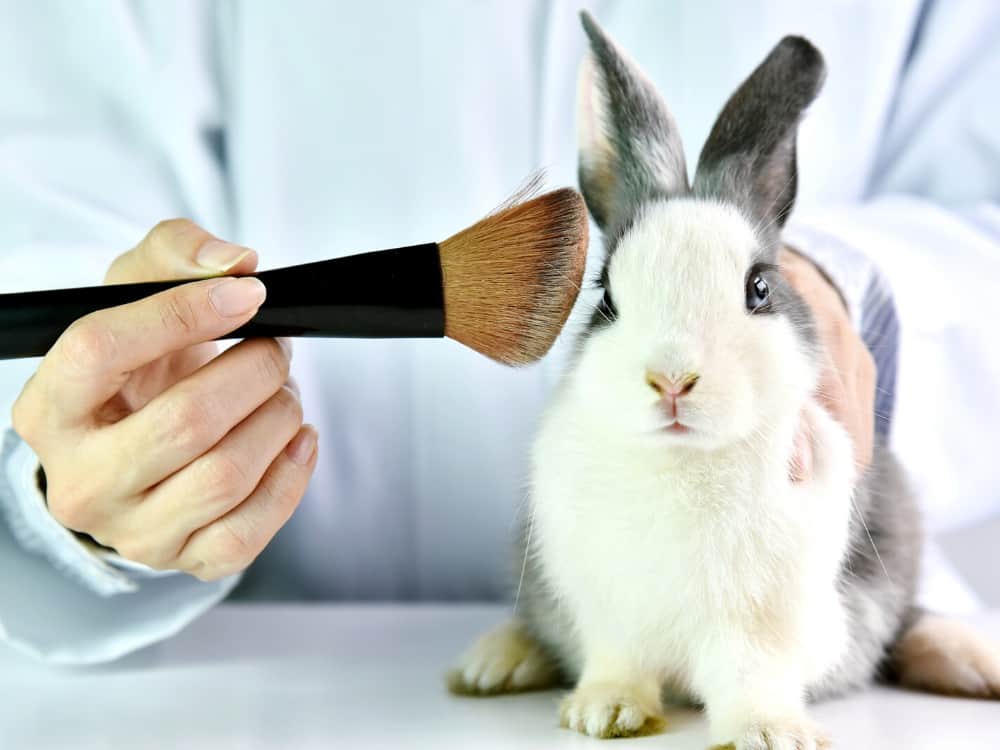
What Does Vegan And Cruelty-Free Mean & Why Does It Matter?
While the beauty industry is bursting with a plethora of, well…beauty products, one thing is clear: the future of the beauty industry is in vegan and cruelty-free cosmetics.
The vegan cosmetics industry is projected to grow into a $21.4 billion dollar market by 2027—up from $17 billion in 2022.
Businesses are listening to consumers’ voices, and animals are having their caws, moos, and roars of rejoicing heard.
But some questions remain: Does cruelty-free mean vegan? Is vegan the same as cruelty-free?
While some sustainable beauty brands may consider the terms “cruelty-free” and “vegan” to be synonymous, they are not inherently (or legally) the same thing. Since neither are regulated, the difference is largely a matter of personal perspective.
So what’s the difference between cruelty-free and vegan?
We’re here to help you differentiate between the two and learn what to look for when shopping for eco-friendly makeup.
The Full List Of Vegan Vs Cruelty-Free Considerations
1. What Does Vegan & Cruelty-Free Mean?
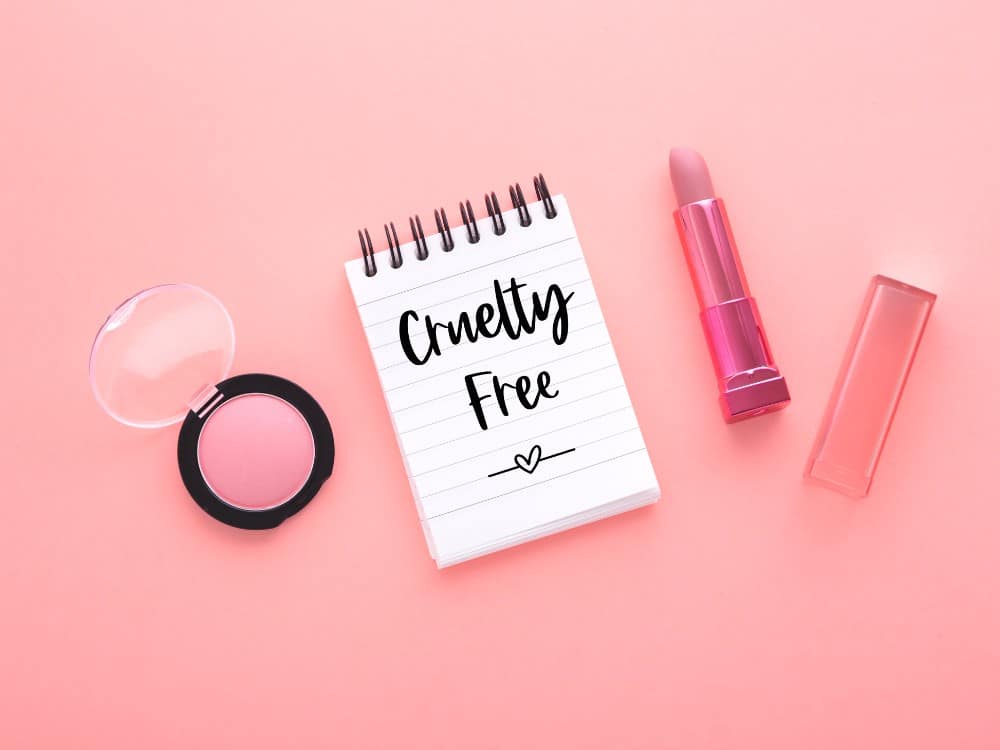
What Is Cruelty-Free?
What does cruelty-free mean?
Legally speaking, nothing at all (more on that later), but generally speaking we can define cruelty-free as a product (including all raw ingredients contained within) that has not been tested on animals at any stage during development.
What Is Vegan?
In beauty and personal care, a vegan brand refers to one that makes entirely vegan products, meaning those that contain no animal ingredients or animal by-products.
And common animal ingredients include honey, beeswax, gelatin, yogurt, and other less obvious animal by-products like lanolin (wool grease), squalene (shark liver oil), carmine (crushed-up beetles), ambergris (whale vomit) and placenta (sheep organs).
Vegan and Cruelty-Free Cosmetics Vs Food
The word “vegan” was originally created purely to describe a diet that excluded all animal ingredients and by-products.
However, it has now evolved over time to a lifestyle choice, avoiding the use of anything animal-related, from leather in vegan shoes and vegan handbags to non-plant-based glycerin in vegan toothpastes.
In a rapidly expanding global market, it’s difficult to access information on direct supply chains, so vegan and cruelty-free labels were created for easy identification of beauty and body products.
This is good because regardless of what your diet is (vegan, vegetarian, or omnivore), none of your cosmetic or body care products need to contain animal ingredients.
In the context of food, vegan and cruelty-free are a bit easier to understand, but it can almost be said that there is the same discrepancy as compared to vegan and vegetarian eating.
Vegetarians (which by the way is also not a legally defined term) may not eat meat, but they still eat animal by-products like dairy or honey, and they may still purchase goods that are made with leather and wool. Dairy is just as detrimental to animal welfare, our health, and the environment.
Fortunately, with beauty, the cruelty-free meaning of the phrase is more straightforward, though vegan philosophies actually become more muddled in makeup thanks to the often misunderstood ethical gap between cruelty-free and vegan.
2. The Ethical Gap Between Cruelty-Free & Vegan
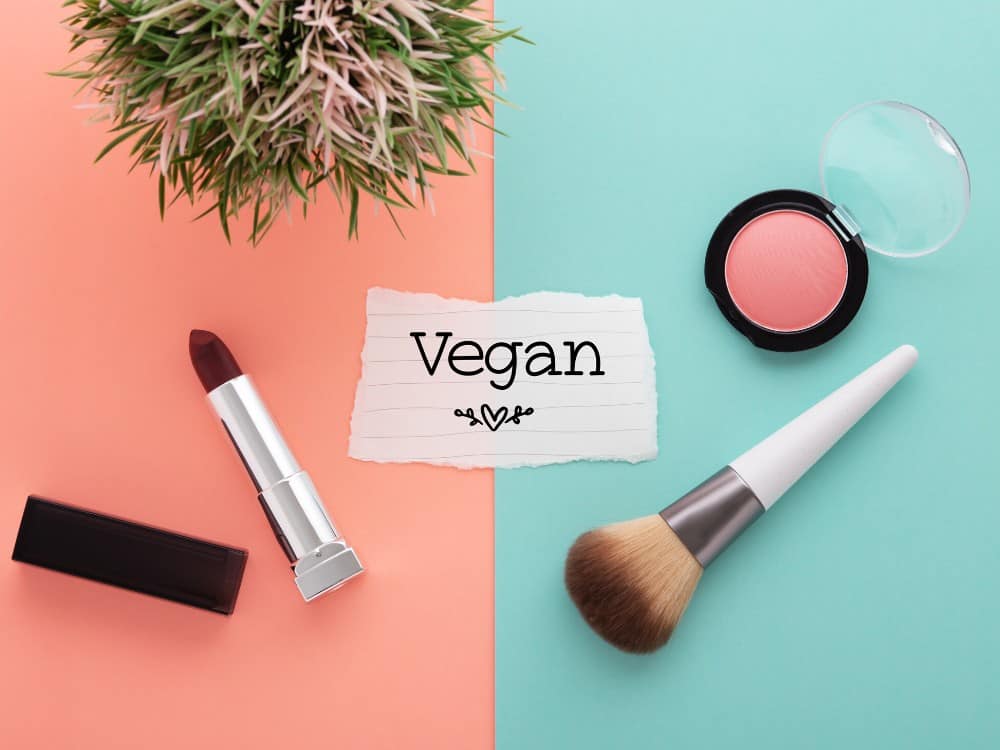
Are vegan cosmetics the same as cruelty-free? Or can a product be vegan and not cruelty-free?
Unfortunately, it’s the latter.
While the principles behind vegan and cruelty-free are much the same, they’re not aligned in execution, and satisfying one of the ethical criteria is no guarantee of the other.
Vegan products, while absent parts of animals, may still be tested on them, like vegan candles scented with animal-tested fragrance oils.
On the same token, you may find animal-derived ingredients in cruelty-free products (like cruelty-free deodorant that contains beeswax or musk). This begs the question: are these products truly cruelty-free?
Generally, we would argue no, though we also understand there are nuances depending on what ingredients and sourcing methods are used.
For example, beeswax can be ethically-harvested without harming the bees in any way, whereas there is no way to obtain carmine that does not involve crushing up beetles.
The Ethical Gap Of China
There’s another ethical gap to contend with, specifically in regard to cruelty-free beauty products. Companies that claim to be “cruelty-free” might not personally test the product on animals but they have a third party do so.
You’ve probably seen the words, “We don’t test on animals, except [insert excuse here].”
Two common clauses include “except when no alternatives are available” and “except when required by law”.
And if brands choose to make their products available to the gigantic Chinese market, it is indeed required by law. To get around this, brands just outsource the animal testing and get to hold on to the cruelty-free tag.
Last year, China amended its regulations to allow for some general cosmetic products to be imported without the need for testing. Still, this is only for select products, but “special use” items (like cruelty-free sunscreen and hair dye) still require animal testing.
There is also a loophole allowing them to pull products off shelves for post-market animal testing if there is a reported safety or health issue.
Because not all certifiers disqualify a brand for selling in China, a number of brands are popping up with a bunny logo that are still indirectly sanctioning animal testing.
The Ethical Gap Of Parent Companies
Another ethical concept to navigate in the cruelty-free arena has to do with the initial stance of the parent company.
A brand, like Tom’s of Maine or The Body Shop, may be cruelty-free but their parent companies (Colgate-Palmolive and L’Oréal respectively) are not.
Do you boycott them because their owners are not aligned with their cruelty-free ethos?
Some people take a hard-line approach while others argue that boycotting big parent companies will have a negative impact on the growing awareness of and demand for cruelty-free products.
We believe that by supporting progressive, independent, and most of all transparent cruelty-free brands (regardless of parentage), we can help them grow into their own ethical empires, which will eventually replace the big brands and put an end to the archaic practice of animal testing.
That’s the hope anyway!
Above all, it’s important to recognize these ethical gaps as symptoms of a larger greenwashing problem and a lack of legal regulation that allows for terms like “cruelty-free” to become less of an ethical guarantee and more of a marketing ploy.
3. Regulation of Vegan Vs Cruelty-Free
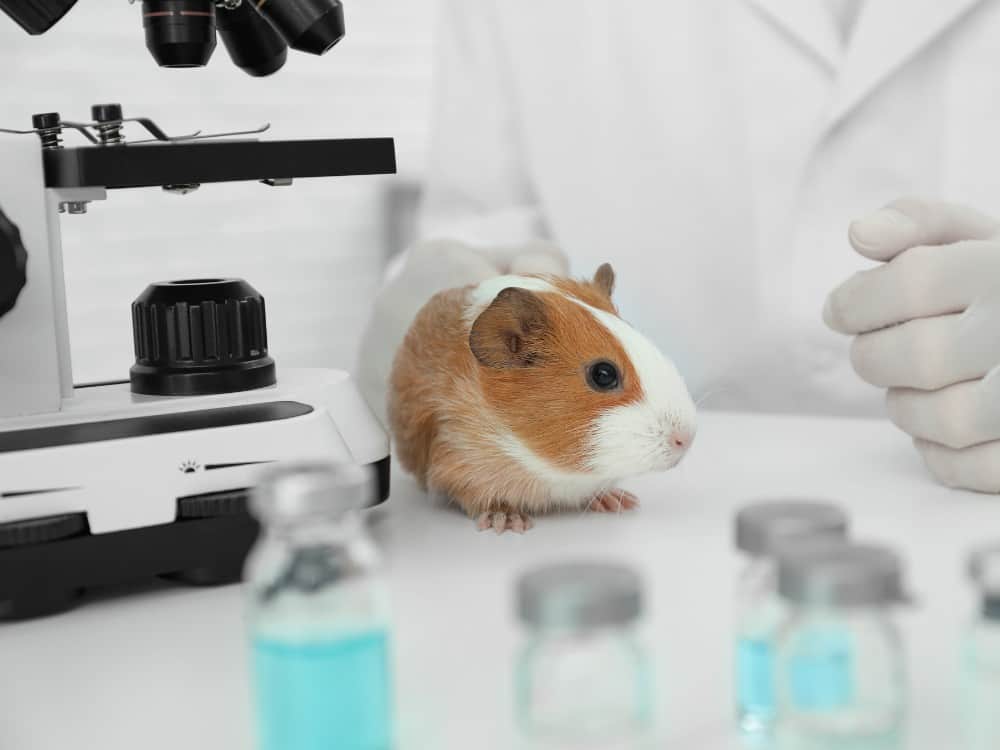
In a country famous for its popular cosmetic brands and Hollywood celebrities, the USA has a major influence over consumers’ buying habits.
Their stance on vegan and cruelty-free is on a relatively positive trajectory in recent years, with at least eight states banning the sale of cosmetics that participate in animal testing.
What’s odd, however, is that animal testing is still the default, especially considering the Food and Drug Administration (FDA) itself does not require animal testing for cosmetics.
Good news, yes, except that it also means they have no standard for how to define animal testing and thus no way to regulate those claims.
So why is the USA a global leader in animal testing when it has also been determined to be extremely cost-ineffective and 96% inaccurate?
Because many US-based brands still test on animals, and countries like Mexico, India, and Norway, won’t sell their products until they change their policies on animal testing.
In the UK, animal testing in cosmetics has been banned since 1998 but only in 2013 did the implementation of the cosmetics directive fully prohibit the testing, selling, and marketing of animal-tested cosmetics.
When the UK left the European Union in 2020, however, this ban effectively ended.
As it stands, Cruelty-Free International has applied for judicial review of the Home Office’s (a government branch) decision to re-allow animal testing for cosmetic ingredients.
This would be a major step backward for the UK, which has been leading the cruelty-free cosmetic agenda and animal rights since as far back as 1876.
4. Finding Vegan & Cruelty-Free Beauty Products
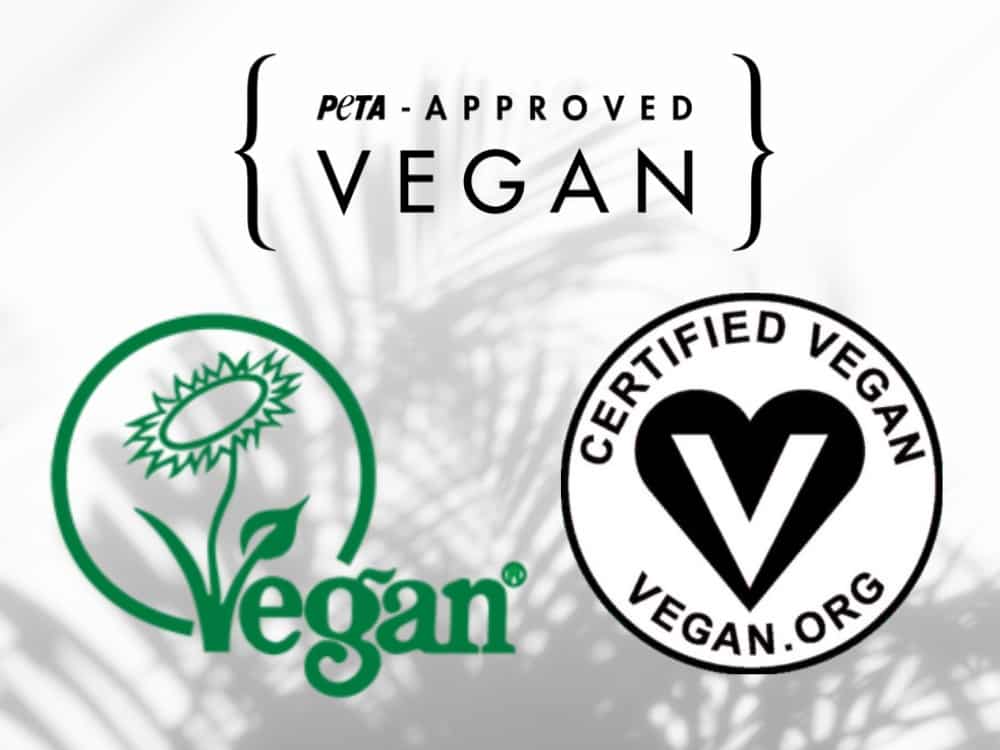
What are vegan products and how can you find them?
As a refresher, they’re those that contain no animal byproducts. This is the easier of the two to discern because as long as the whole ingredient list is accessible, you can run a quick check.
Start by learning to recognize animal ingredients commonly used in cosmetics. While some are obvious (i.e. honey and beeswax), others are far less obvious (i.e. glycerin, which can be plant OR animal-derived, so specificity is key).
Finding vegan beauty products only gets complicated with items like perfume, where brands are not legally required to list out the ingredients in fragrances for proprietary reasons. This is why we urge you to look specifically at vegan and cruelty-free perfume brands.
While not as well known as their cruelty-free counterparts, there are a few trusted vegan associations or bodies that provide their stamp of approval for vegan products:
- People for the Ethical Treatment of Animals: Look for “PETA-approved vegan”
- Vegan.org
- Vegan Society UK
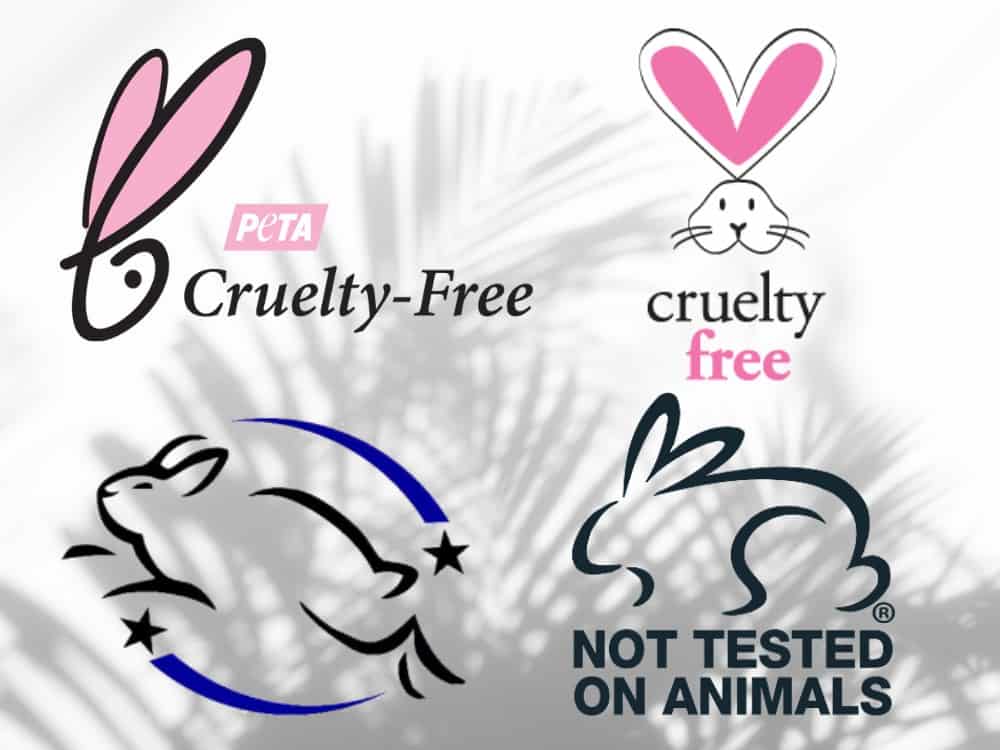
What are cruelty-free products and how can you find them?
Those that haven’t been tested on animals.
Unfortunately, these are much harder to find because, according to the FDA, there is no legal definitions (and thus no regulation) of the terms “cruelty-free” or “not tested on animals”.
The following resources for finding cruelty-free cosmetics companies can help:
- PETA’s Beauty Without Bunnies searchable database
- Cruelty-Free Kitty
- Leaping Bunny
If you can’t find a smaller brand there, try searching for their parent company.
You can also utilize a number of fairly credible cruelty-free certifications to clear up the greenwashing of “cruelty-free” claims. While certifications are not completely guaranteed either, they’re certainly better than simply accepting claims of being cruelty-free at face (makeup) value:
- Leaping Bunny: Certifies a brand and all its suppliers are cruelty-free but will still certify brands with non-cruelty-free parent companies. They are launching a special Leaping Bunny China Qualification Program in light of previously mentioned Chinese policy updates.
- PETA’s Beauty Without Bunnies: Will still certify brands that sell in China.
- Cruelty-Free International (formerly Choose Cruelty-Free): Will not certify brands that sell in China).
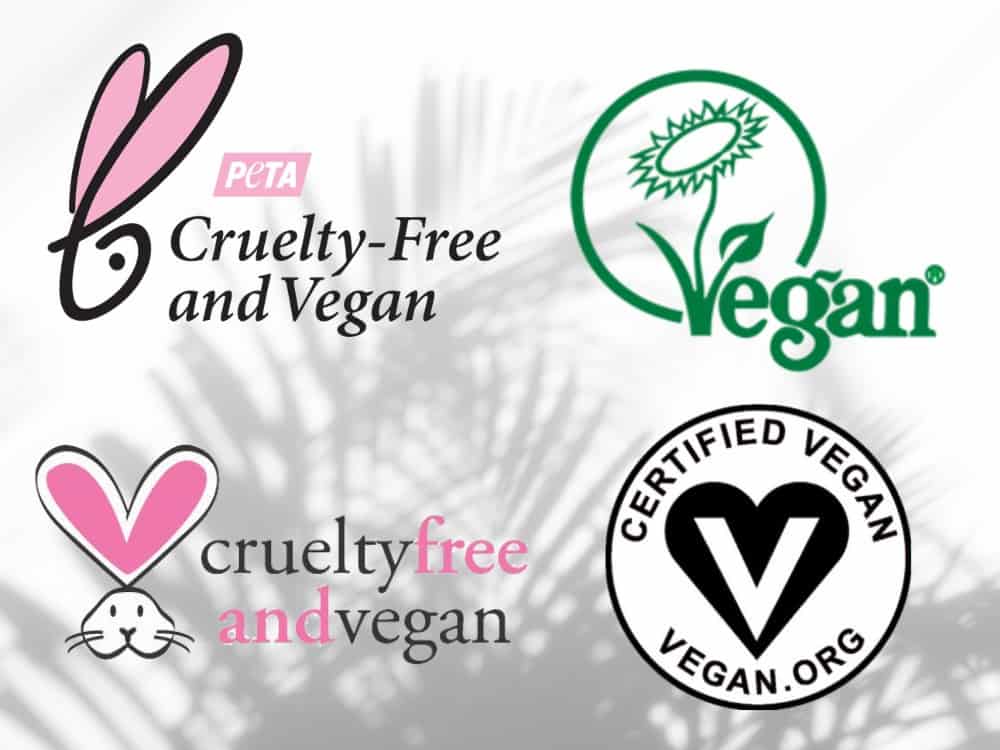
So what can we do as consumers to ensure we find both and are not falling into that ethical gap?
To curb the ethical gap, you want to ensure that the product and brand are both vegan and cruelty-free, meaning you should look at ingredients, brand transparency, AND certifications.
Some certify a product is both:
- PETA Cruelty-Free & Vegan
- Leaping Bunny Cruelty-Free & Vegan
- The Vegan.org
- Vegan Society UK
You can start by peeking at our guides for cosmetics and beauty products like vegan and cruelty-free concealers and vegan and cruelty-free moisturizers.
There are also a number of apps such as Cruelty Cutter you can have quick access to on your phone as you’re out and about shopping.
5. Our Complete Ethical Beauty Criteria
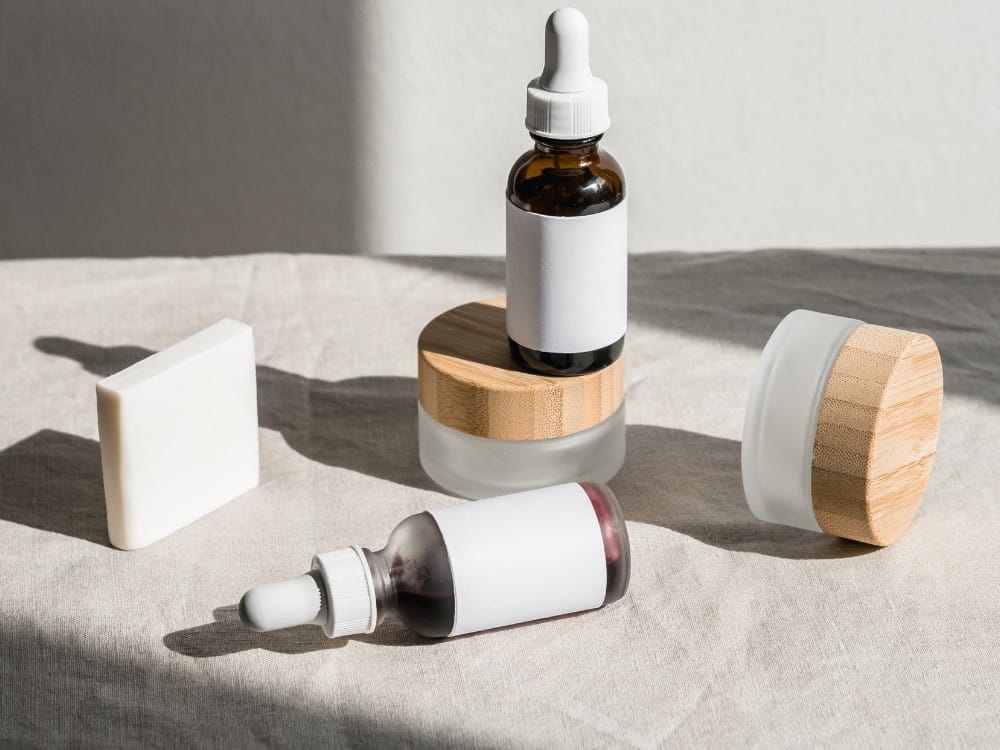
Besides looking for vegan and cruelty-free cosmetics and other personal care products, our sustainable and ethical beauty criteria encompass a few other concepts designed to protect the environment, supply chain workers, and YOU.
After all, products that harm the environment can’t be cruelty-free, as our consumption of anything has an impact on the world around us which also happens to be the animal kingdom.
While we can’t always tick every criterion for every brand, we try to find products that satisfy as many as possible.
- Cruelty-free: This one is always non-negotiable for us.
- Vegan: We make exceptions for ingredients that can be ethically sourced in a way that doesn’t harm the animal, but we show preference to brands who offer vegan alternatives.
- Non-toxic: Another term that’s not regulated, so we define it as utilizing natural skin care ingredients rather than synthetic and often toxic ingredients to avoid in skincare.
- Palm oil free: Not a straightforward criteria since palm oil is the most efficient / carbon light oil palm in the world. But palm oil plantations lead to deforestation and the deaths and displacement of thousands of animals, so we prioritize palm oil free where we can.
- Ethical ingredient sourcing: Part of this is satisfied under veganism, but we also want to ensure the ingredients do not come via slave labor or irresponsible harvesting practices.
- Thoughtful packaging: This ideally means zero waste (naked, compostable, refillable, or reusable) but recyclables and recyclable packaging materials are better than nothing.
Did you know we Have a Newsletter?
We cover the latest in sustainable living, fashion, zero waste, beauty, travel, finance and more…
Final Thoughts On Vegan Vs Cruelty-Free
When it comes to the cosmetic and beauty care industry, many people tend to think that cruelty-free and vegan are synonymous, but this is unfortunately not so.
The good news is that demand for cruelty-free and vegan brands are on the rise, with an increasing number of consumers seeking out cosmetics with a cruelty-free certification.
Whether you’re already supporting cruelty-free and or vegan brands or if you’re just starting out on your ethical journey, take some time on your next hunt for sustainable skincare or palm oil free shampoo to find products that satisfy both.
By making informed decisions, you’re supporting brands that are heading in the right direction—towards pro-animal welfare and animal rights.
And if you want to support conscious consumption, consider sharing this article with someone who may not appreciate the difference between cruelty-free and vegan.
Pin these:
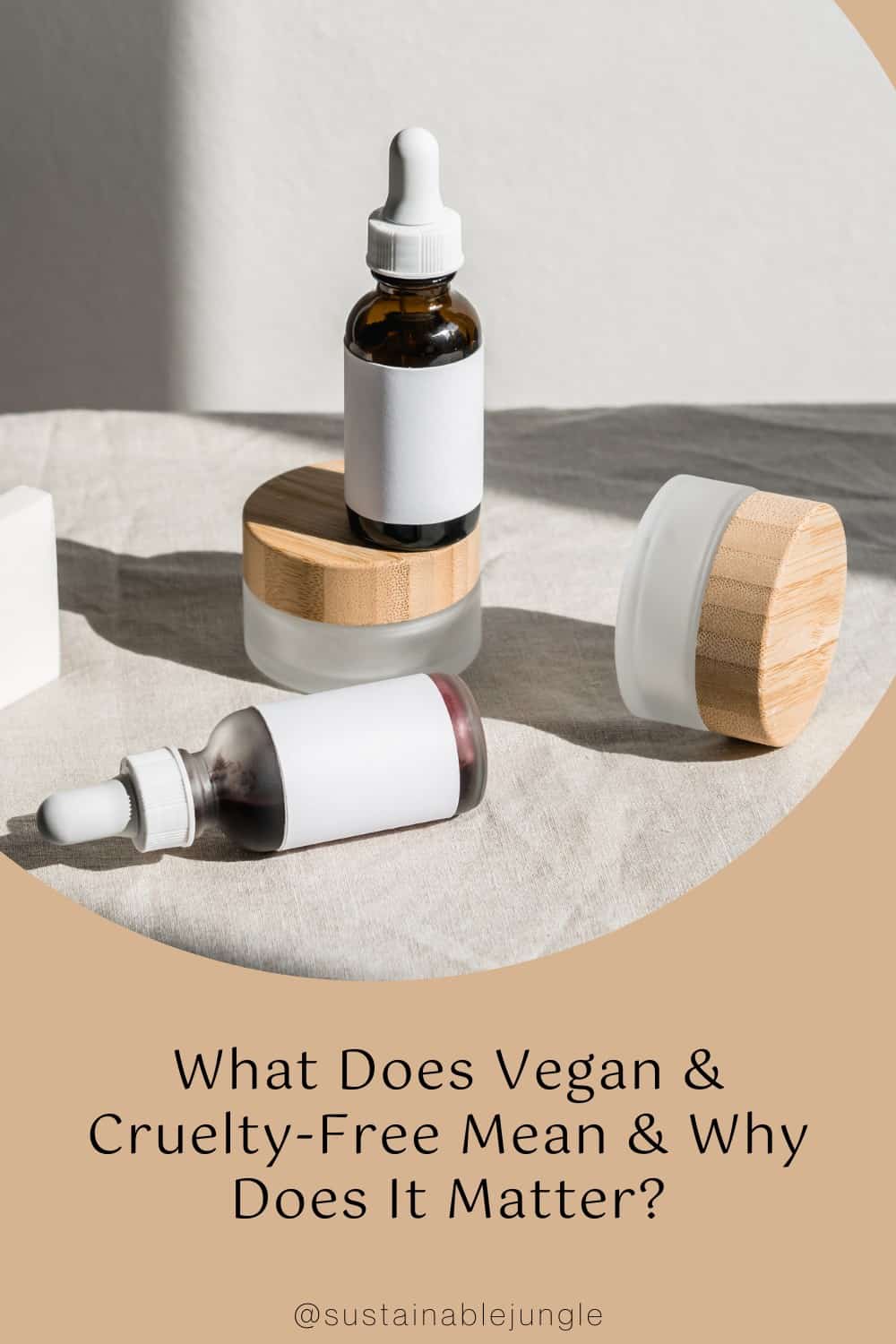
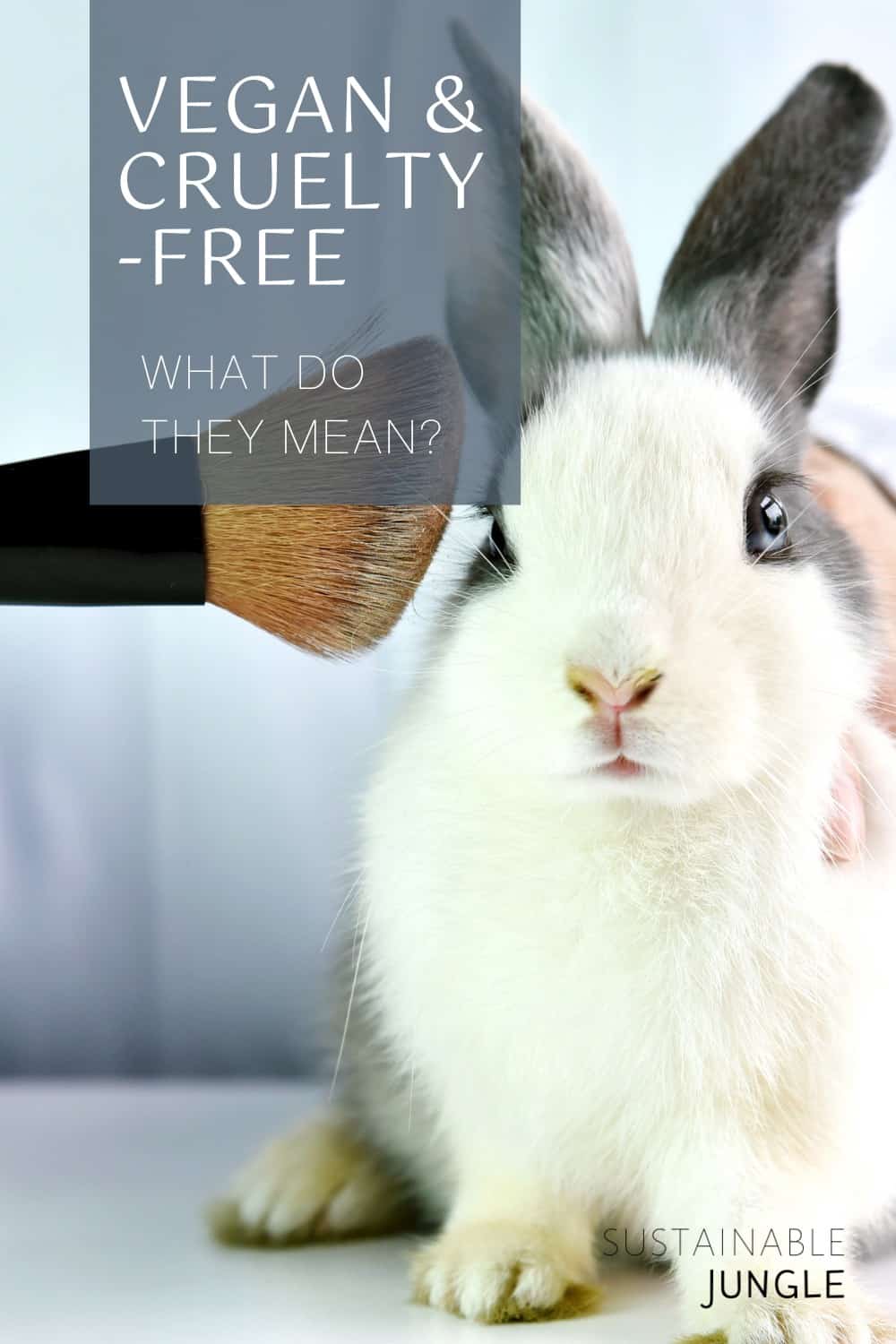

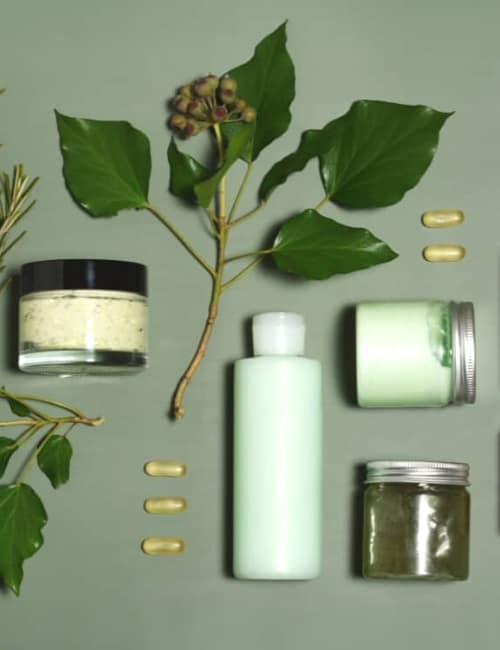
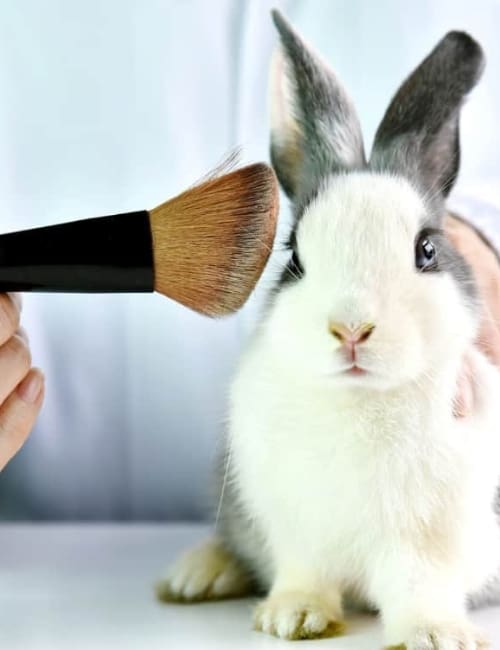
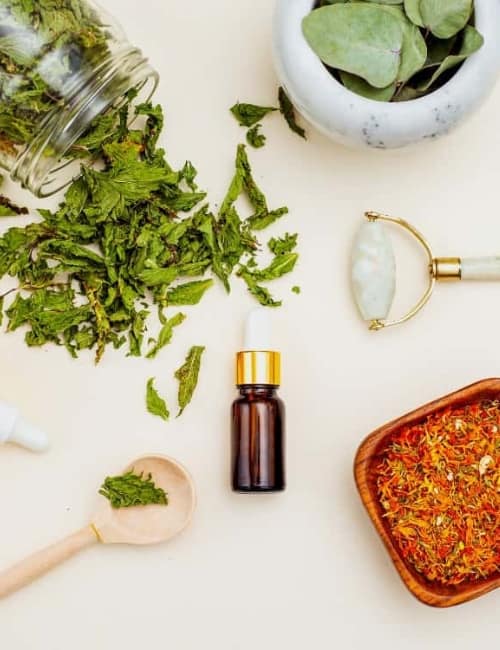
Great post, to follow the logic of this post, surely this means avoiding buying vegan products at fast food chains? As they’d not be considered cruelty free?
Hi K, this was originally written in the context of beauty products. I wouldn’t be able to say it covers fast food accurately so probably needs a bit more research.